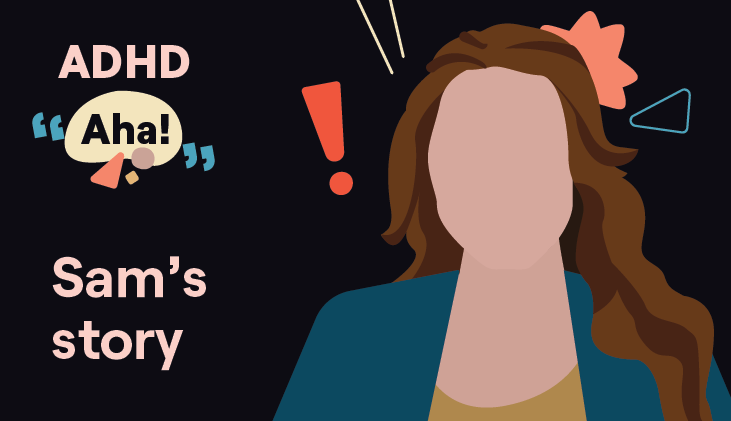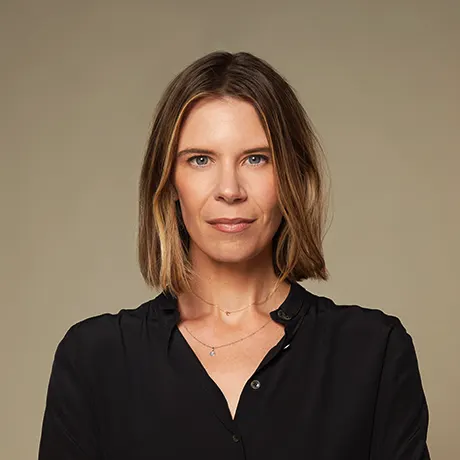Stay in the know
All our latest podcasts delivered right to your inbox.
Before her ADHD diagnosis, accountant Sam Salmons felt “fixed, but still broken.” As a young adult, she spent years in therapy, treated her depression, and had a laundry list of coping skills. So, why couldn’t she stop her body from doing things — like interrupting — that her mind didn’t want to do?
Sam saw herself as an “extroverted extrovert.” She was constantly talking and impulsively saying yes to everything. Then her therapist recommended an ADHD evaluation.
Related resources
Episode transcript
Samantha: My "aha" moment was at a work conference. I'm listening at lunch to this presenter who I really want to hear what he has to say, and I know nothing I will say will add value. And yet there's this intrinsic desire to say something, say something, say something. And then I go through this kind of internal dialog of shaming myself into not saying anything, and then my body just says it.
Laura: From the Understood Podcast Network. This is "ADHD Aha!," a podcast where people share the moment when it finally clicked that they or someone they know has ADHD. My name is Laura Key. I'm the editorial director here at Understood. And as someone who's had my own ADHD "aha" moment, I'll be your host.
I am so excited to be here today with Sam Salmon. Sam is a listener who wrote in. Thank you for listening, thank you for writing in Sam. She is also an accountant who is based in Virginia Beach. So thank you for being here.
Samantha: I am so excited. And I mean, I kind of wrote in just to like, thank you for what you do because it really helped me. And then you were like, "Would you like to come on?" And I'm like "Stop."
Laura: We like to sneak attack on people like that.
Samantha: I know I'm over here just like, "Girl, let me give you a compliment!"
Laura: Oh, thank you. I appreciate it. Let's start, Sam, with you at 23. What was that, about five years ago?
Samantha: Yes. So, 23 was that special moment in between, I'm not depressed anymore, but I can't do the simple things I feel like everyone else my age around me is doing. It was this whole imposter syndrome of, you know, I have a job and I'm paying bills and I have a good friend group and I go out and do things and like, I can't take out the trash, I can't do the dishes.
There's some huge mental block that happens when I go to like, do these simple things. And then I feel like, am I depressed because I can't get up and do this task? I'm sitting here on the couch yelling at myself internally, like "You have no excuses, why can't you do it?" So then I'm sitting there mad at myself and I'm like, am I depressed because I can't get up and do something?
I've done the things I was told to do. I took my medications, I tried to take out alcohol. I mean, there was probably a period in the six months to one year before my diagnosis when I bought my home and it was on the tail end of Covid when everybody's returning to the office and I was working out, I had a life coach, I had a therapist, I had a psychiatrist, I did an elimination diet, I took vitamins, I went sober I think from alcohol for five months.
I mean, I was doing all the things that in the little social media "Oh, holistically, you can fix things. You can fix your mental health if you just do these things." OK. I did all the things and still can't take out the trash.
Laura: And so, this whole idea of "fixed" in quotes but "still broken." That was first of all, that was the subject line of the email that you wrote into that was certainly attention-grabbing. So, it sounds like you had been doing a lot of things to get your mental health on track, and yet something was still off.
The next step I want to... the next beat, I guess for your story that I want to touch on is, I need you to tell us about the work conference. So this is when you're, how old? You're 20...
Samantha: I am 26.
Laura: Now you're 26, and you are at a work conference. You're an accountant.
Samantha: I'm an accountant. I love accounting. I am a nerd at heart. So I'm at a fraud audit conference.
Laura: Oh, that sounds like a blast. Yeah.
Samantha: Oh, my God. It was so exciting.
Laura: It's funny because other people would think that you were being sarcastic, but you're not. It was so exciting to you.
Samantha: No, like, legit. And it was the first conference in-person post-COVID. So at this fraud accounting conference — back in the world, back to talking to people — I'm ecstatic, but I'm a professional. And so I'm trying to rein in my excitement. And it is day two, little tired, lunchtime. Me and some coworkers are sitting at a longer lunch table, and at the end was one of the presenters that went and his was so thrilling. Very exciting, no sarcasm. It was so engaging. I loved it.
So, I wanted to hear more about what this guy had to say. So he's talking and I'm engaged, I'm excited, I want to hear what he has to say. And then I get this overwhelming urge to talk. And it's like, "Sam, don't say anything. Don't say anything. Don't say anything. Don't say anything. Like you have nothing of value to add. He's the expert. You want to hear what he has to say. Anything you say adds nothing."
And I knew it. Then, all I could think about was not saying something. That took away from me listening because I was so — I don't want to say like, self-shaming — but I was kind of like, "Sam, if you say something you're going to take away from the moment, could be embarrassing, it's not the time and place. You’re a professional like, keep it together. Like let this man talk, he's the expert."
And this went on for a few minutes, and all of a sudden, I say something. Don't know what I said, but I knew after I said it, it added nothing of value. And everybody kind of looked at me and said, "Uh huh." And then the guy went back to talking, just as I had imagined in my brain it would go. And then I sat there and I was like, "I don't get it. I literally didn't want to talk. I did everything to not talk. Why? Why do I feel like my body and my mouth run before my brain?"
And It brought up moments where I had been talked to in my youth about thinking before you speak. I have no concept of that. Do you think before you talk out loud? like, that's how I process stuff. Like I never understood that. Or like, waiting your turn to talk. Politeness, professionalism, respect. A lot of those big words, especially in the business world, come up very often. Like there's a level of professionalism expected of you.
And not only does your appearance, but your behavior has to match. And I just sat there and I was like, "I don't get it. I didn't want to do this. Why did I do it?" And then I thought of childhood. Think before you speak. No concept of that. Then it brought me back to this memory of freshman year of college. We're all sitting kind of in this dorm hallway in between classes. I hate silence. I can't stand silence.
And I guess there was a break in the conversation, we're all kind of just chillin. And I said something. Once again, no idea what I said, just filling space. And this girl looked at me and she goes, "Sam, sometimes when you talk, I feel like you just, like, waste air for everyone else."
Laura: Oh, dear. OK, so this is... that's intense. That's painful.
Samantha: So here I am at this conference feeling like I did, at that dorm hallway freshman year, and I was just like, oh, my God, I literally for months after that comment from that girl, I really reined it in. I was like, "Oh my God," it just was this thing of shame for something I couldn't control.
Laura: You've painted a really colorful picture of you at this conference. And I really, I'm imagining time really slowing down. I mean, talk about an "aha" moment, right? Like you've got the connection to your past. You've been here before, but now it's more acute. You're older. You know, you've processed a little bit more, maybe not all the way.
That's big, right? And no matter what everybody else at that conference was thinking of you in that moment — which probably was not nearly as dire as what was going on in your own mind — that moment for you is such a light bulb. Like, that's. That's the show. We can cut it right here. That's "ADHD Aha!."
Samantha: Literally. And that's not even the part where I realized I had ADHD. That was just me...
Laura: Well, then I digress. Let's keep going.
Samantha: Yeah, this story ain't over. I mean, that was the moment where I felt just the shame of my life of interrupting, lack of control over things that I didn't even want to do in the first place and I thought I was past it. That's what was hard. Was "Oh, I'm not in college anymore. I'm an adult. I own a home. I have a degree. I'm doing, like, a very professional job."
Laura: Right. You're being treated for depression and anxiety. You're working on your mental health.
Samantha: I'm not even really depressed anymore.
Laura: Exactly!
Samantha: I'm doing all the things. I'm having a healthy diet, you know, not depressed anymore. That was my thing, was...
Laura: Yeah, you're like "Everything must be fixed," right?
Samantha: I should be good to go! So a week after the conference, I had therapy and, oh, I love my therapist. She calls it as she sees it. But I had only recently started seeing her on recommendation from my psychiatrist. So I'm talking to her about the conference. And that was the big thing.
At one, I was worried if I'd even have the energy because I exhaust quickly (which now makes sense), but also the inability to shut up. Why can't I shut up? And, you know, I'd been talking to her for a few months now, and she had asked me, she was like "Is this something, you know, that commonly happens?"
And I told the story about the freshman dorm "you waste air for everyone else" comment and just kind of always feeling like my body did things that I would tell myself not to do. And yet, there I was doing it or saying it.
Then she asked me a few other questions and I'm like, "Oh yeah, oh yeah, all the time." And she was like, "Have you ever been fully diagnosed? Have you done a full diagnostic workup?" And I was like "What are you talking about? I've been in therapy for six years. Like, I've done the little 14-question surveys on depression and anxiety."
And she said "No, no, no. Like multiple tests. Like hundreds of questions, full workup, everything." And I was like, "No." And she was like, "I'm so sorry someone hasn't done that for you yet. But I'm pretty sure you might have either Bipolar Manic or ADHD. But definitely, something besides depression and anxiety is running your engine pretty much."
Laura: How did that make you feel? I remember when we talked last, you mentioned I'm just an extrovert, right?
I am an extroverted extrovert. That is what I told myself. And that's how I lived, when I had these outbursts, that was my excuse. That was my reasoning. And ironically, years of therapy and depression, anxiety, I thought I was like all hipped to the mental health, mental illness world. I thought I, yeah, I had depression wholeheartedly, 100%. But then I didn't know that you could have others.
Like I thought "Oh, yeah, that's the thing. Let me fix it." But then I wasn't fixed. And so it went down this rabbit hole of her kind of highlighting some previous conversations I've had about things I've done since I've been working with her, stories I had and she is like "This seems to be a very common trend with you and impulsivity and inhibition to control." And she said, "The talking is just a piece."
Laura: So you're talking with your therapist and this impulsivity theme comes up and you have this image of yourself as "I'm an extroverted extrovert, I'm talkative." Right? Which is, by the way, as a key reason why so many women go under the radar for so long because, like, "It's a female trait. She's just chatty" Right? "She's just chatty." But I want to talk more about impulsivity. Tell me what your body feels like. What does impulsivity feel like in your body?
Samantha: So, I guess the best kind of example would be doing chores around my house. It's as if I'm on an autopilot to what's in front of me. It's, I'm cleaning upstairs, I got to take laundry downstairs, well, I have to pass by the dishes. Well, OK, "I should really get those dishes done. At least unload the dishwasher." Well, then I'm looking at putting this mug back on the shelf while I really want to wipe down that shelf. I go to grab a rag. OK. Well, I passed by the Swiffer. Oh, I've dog hair everywhere, "I should really swiffer that up." And then I'm looking at the uncompleted project that I'm also working on that I'm just walking past ignoring fully because I'm like, "Oh, well, you know, if I'm going to do that, I think I still got to go to the store and grab this, been meaning to do that for months." But it's a very autopilot...
Laura: Right, just do, do, do.
Samantha: And there was that thing before I was told possibly this is ADHD. there was a lot of anger at myself for not being able to control that. Also with going out and socializing. If, you know, I go out and meet people for dinner and they're like, "You know, I'm feeling like going out." I'm like, "Yeah, let's do that." And next thing you know, I'm doing tequila shots on a Monday night.
Laura: So, not thinking, right?
Samantha: It was yeah, like it just was I knew I had work the next day. I knew I had responsibilities. I mean, or if I'm not even drinking, I'm just out. Yeah. And then I'm spending money.
Laura: Then you're saying, yes. You're spending money. You're saying yes to everything, right? You're saying yes to life and like, on autopilot. Is that accurate?
Samantha: Yeah, it's literally this autopilot. But then there's so much shame in the after-effect. And that's where I think my therapist noticed, is these are things I'm not wanting to do, yet I'm doing them. I know I wanted to go home and go to bed, yet I found myself out and about.
Laura: Yeah, that's really profound. That's a big moment.
Samantha: So, I finally get officially diagnosed, which during the exam she said, "Do you realize when you get focused, you start humming?" And I go, "What?" No idea. And then, I forgot what the time frame of the questions were being asked halfway through the test. I'm like, writing all these things and this and that, and she's like, "I haven't even graded this, but I'm pretty sure I'm on the money." And sure enough, she was.
And so I'm telling coworkers and friends and I'm saying, "Hey, I'm pursuing this path of my health, of getting diagnosed. There might be medication. I don't know how I'm going to react because my history with depression medication. You know, it's exhausting to adjust and regulate and it's physically wearing and it's mentally wearing.
And so, I kind of wanted to give the heads up of "I'm going to be pursuing this path. I want to keep you up to date." I had great coworkers that were really supportive, but then some were like. "Well, yeah. You didn't already know you had ADHD?"
Laura: Yeah, that's right.
Samantha: I was in therapy for six years. Wouldn't I be the first to know? You know, that's the thing was it was this anger I had of, I was in therapy, I was doing everything I was supposed to do. How come no one caught this? How come I went this long without getting help?
It was just mad, I think, at society for letting me go and believe that I couldn't have ADHD. So there's a Maya Angelou quote, "Do the best you can until you know better. Then, when you know better, do better."
Laura: It's beautiful.
Samantha: And that is how I feel like the whole source of anger washed away. I'm criticizing this path I was on. It went on unnoticed or undiagnosed for so long. But everyone around me, everyone on my path, even me, we didn't know.
Laura: And now I think it's fair to say, like you do know better now, you've had so many realizations over the last few years. So like, what does that mean for you now, today?
Samantha: Just that acceptance of, people can only work with what they know. And to advocate, to educate, to talk. Your podcast, amazing for talking about these moments where people are like, "I thought everything was fine and dandy, and then "aha," I could use and benefit from this help."
Laura: That's beautiful. Extra points for using "aha" as well.
Samantha: That's like the bingo word.
Laura: Sam, your story is so gorgeous and so well shared. I have to commend you on the amount of detail that you bring. I've just been just basking in everything you've been saying and all of the moments that you painted.
And this whole time I'm like "Am I talking too much?"
Laura: You're the guest. It's your show today baby!
Samantha: I know! But, thank you.
Laura: You've been listening to "ADHD Aha!" from the Understood Podcast Network. If you want to share your own "aha" moment, email us at ADHDAha@understood.org. I'd love to hear from you. If you want to learn more about the topics we covered today, check out the show notes for this episode. We include more resources as well as links to anything we mentioned in the episode. Understood is a nonprofit organization dedicated to helping people who learn and think differently discover their potential and thrive. We have no affiliation with pharmaceutical companies. Learn more at Understood.org/mission. "ADHD Aha!" is produced by Jessamine Molli. Say hi Jessamine!
Jessamine: Hi everyone.
Laura: Briana Berry is our production director. Our theme music was written by Justin D. Wright, who also mixes the show. For the Understood Podcast Network, Scott Cocchiere is our creative director, Seth Melnick is our executive producer, and I'm your host, Laura Key. Thanks so much for listening.
Host
Latest episodes
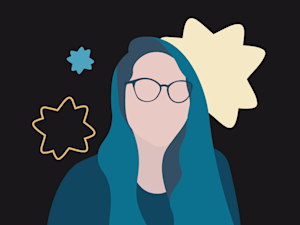
April 16, 2024
ADHD coach Jaye Lin was a gifted kid with undiagnosed ADHD. Now, she’s building communities and helping others cope with ADHD burnout.
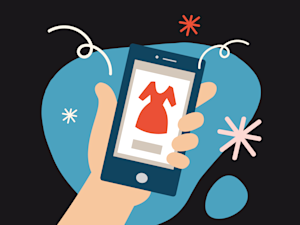
April 2, 2024
Writer Paulette Perhach had money coming in but struggled to keep it in her bank account. An ADHD diagnosis brought her struggles into perspective.
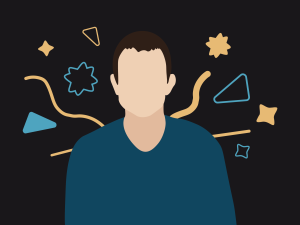
March 19, 2024
Eye to Eye founder David Flink is fighting the “just try harder” myth surrounding ADHD, dyslexia, and other learning and thinking differences.
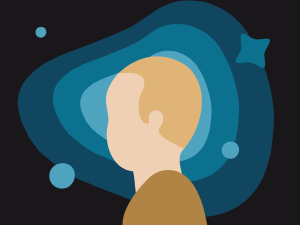
March 5, 2024
Peter Jones used to feel better saying he had a hearing problem rather than considering ADHD. Now, he knows he has ADHD and isn't afraid to say it.
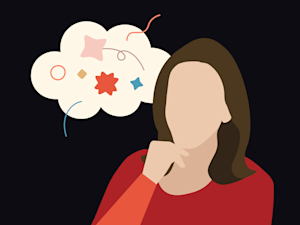
February 20, 2024
Before her ADHD diagnosis, ADHD coach Emily Weinberg thought she was just lazy. But in reality she was stuck in “analysis paralysis.”
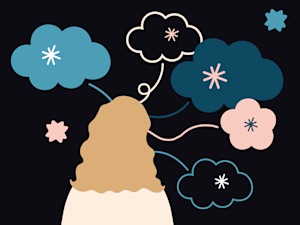
Carol Blumenstein was called an unteachable student. Now, she knows she has ADHD and dyslexia, and supports her five kids who learn differently, too.

January 23, 2024
Executive coach, actor, and former criminal defense attorney Ernest Anemone shares his ADHD story — and why he questions the term “attention deficit.”
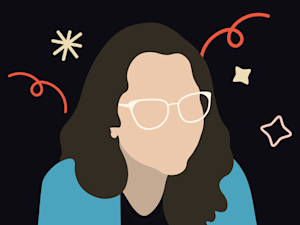
January 9, 2024
ADHD and post-traumatic stress disorder (PTSD) symptoms can look similar. And they can morph into what Hannah calls “a trauma ball of blame.”
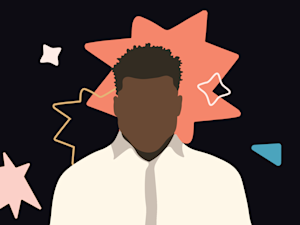
December 26, 2023
Livingston Steele was diagnosed with ADHD about a year into working at Understood.org. His experience and work have given him immense empathy for people with ADHD.
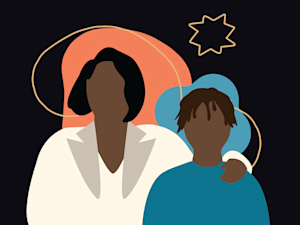
December 12, 2023
Wendy Zanders is a decluttering coach with ADHD. Find out how she got into organizing, and get a few tips for yourself.
